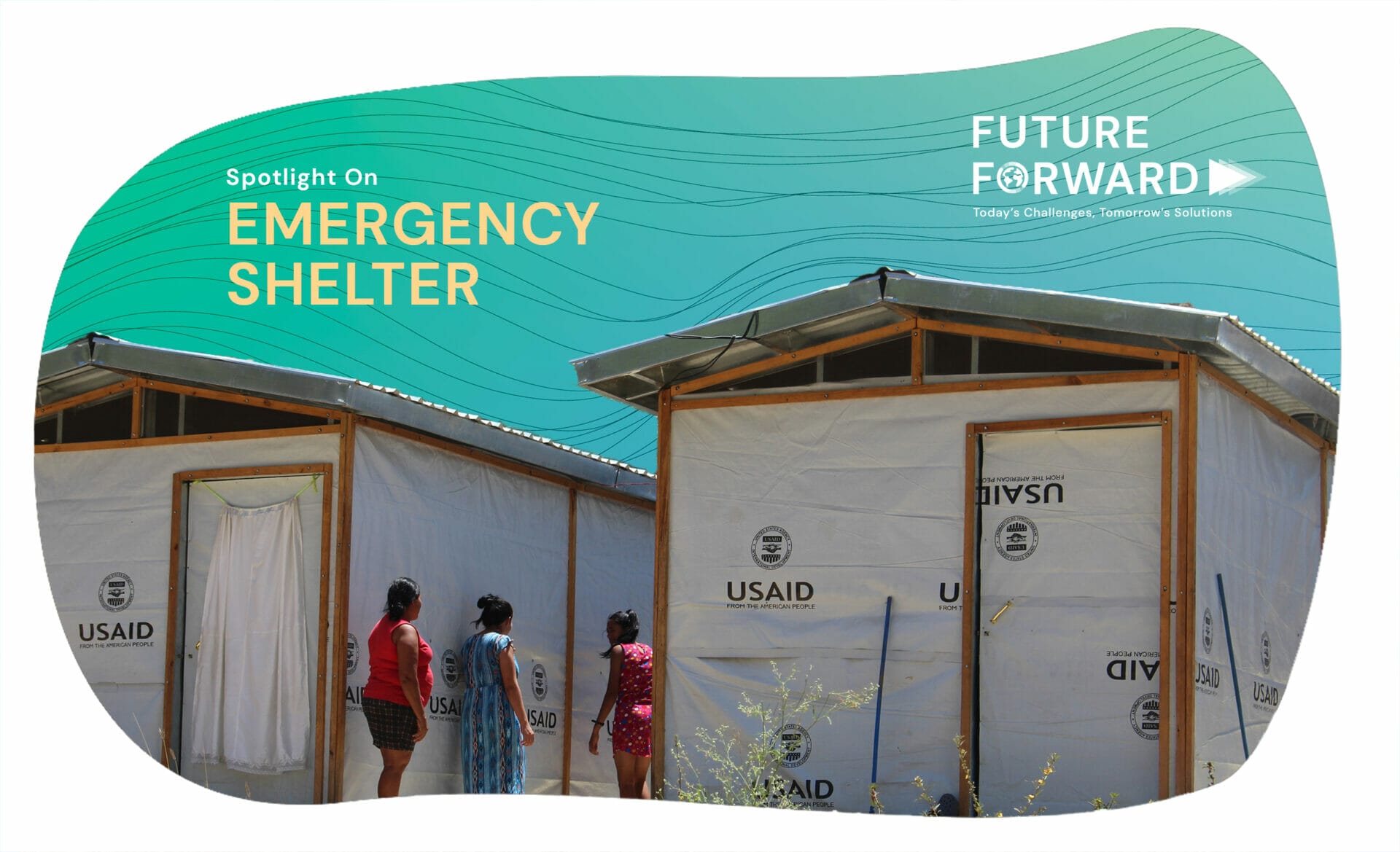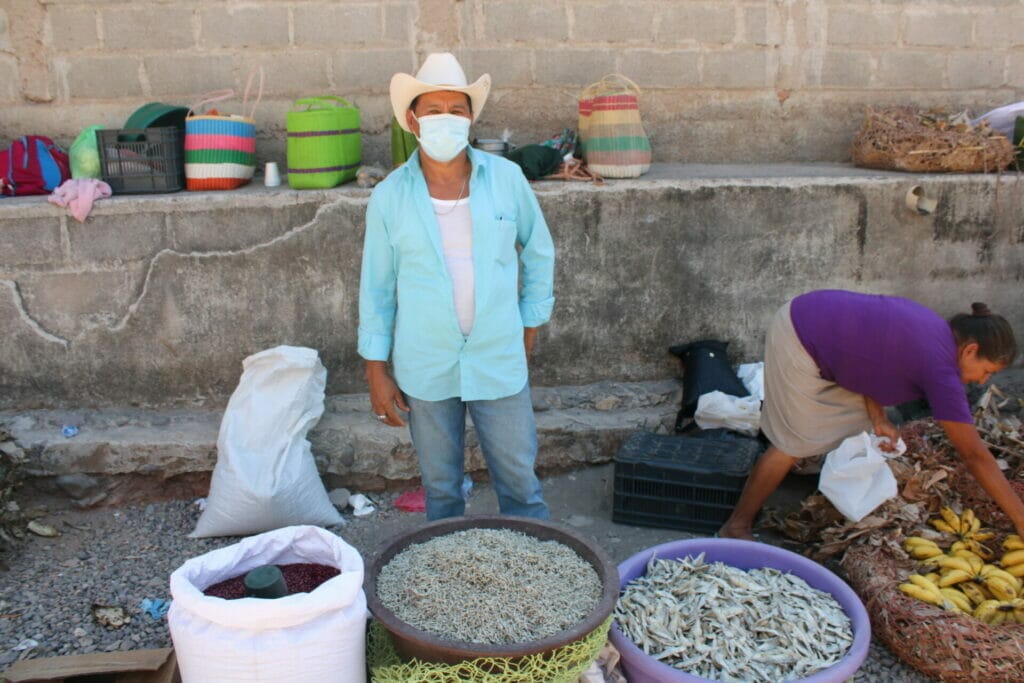News > Blog
Rebuilding a Sense of Home and Hope in Honduras
Published 05/16/2022 by Global Communities

By Alberto Vásquez Padilla
Martha’s broad and welcoming smile begins to fade as she starts to tell her story.
Originally from a small village in Lempira, in the western region of Honduras, she left her town for the city when she was 18 years old. Now 43, Martha says she was looking for better opportunities and had the desire to grow as a person, start a family and eventually build the home of her dreams.
With hard work and dedication, she managed to buy a 13-square meter plot of land in the Ernesto Dieck community in Villanueva, Cortés, where she built a house of wooden columns and tin roofing for herself and her family. That was eight years ago.
In November 2020, Martha and her three children lost that home and all of their belongings to floods caused by tropical storms Eta and Iota. They were one of many families in the community left homeless by the destruction.
On that fateful night, she recalls being stirred awake by water up to her knees. She immediately fled to the nearest city looking for shelter.
“I only had time to look for the land title,” Martha says. “I couldn’t afford to lose it.”
In response to the crisis, Global Communities arrived at Ernesto Dieck to implement the Honduras Emergency WASH and Shelter (HEWS) program funded by the U.S. Agency for International Development’s Bureau for Humanitarian Assistance (USAID/BHA).
Over the course of 14 months (Nov. 2020 – April 2022), the HEWS program aimed to address both the immediate needs and early recovery of 100,050 people by organizing access to clean water, sanitation and hygiene, safe living conditions through improved shelter and settlements, and multi-purpose cash assistance. Program activities also focused on fostering economic recovery through support to agricultural and non-agricultural livelihoods.

Martha and her children were one of 2,378 disaster-affected families to receive temporary shelter/repairs to their damaged homes and latrines to help meet their basic needs as they navigated a new reality. The program also trained interested residents to serve as volunteer community leaders who worked with Global Communities’ field team to organize HEWS activities and convene families for meetings and distributions.
Although I know [this shelter] is temporary, it provides an opportunity to rebuild my goal of having my dream house.”
Martha, HEWS program participant
“This shelter that the project built for us means so much. I feel safe and happy having a dignified roof over my head,” says Martha, who also credits the HEWS program with helping her discover her community leadership capacities.
In addition to assisting HEWS program staff with identifying families in need of support, Martha also serves as treasurer of Ernesto Dieck’s board of trustees. Although she has held this role for the past four years, she says she now feels more secure and confident managing resources thanks to training opportunities offered by Global Communities through the HEWS program.
One of her new goals is to work with government authorities to bring electricity and a stable water supply to the Ernesto Dieck community. She also wants to become president of the board of trustees. As she pursues these new ambitions, Martha says she has not forgotten about the one that first brought her to Ernesto Dieck several years ago and disappeared before her eyes in the wake of the storms.
“Although I know [this shelter] is temporary, it provides an opportunity to rebuild my goal of having my dream house,” she says. “It will be pink on the outside, with concrete walls, everyone with their own room, and a large kitchen to get together to cook our meals.”

In addition to providing over 2,378 disaster-affected families with temporary shelters or shelter repairs following tropical storms Eta and Iota, the HEWS program supported 3,784 farmers in the departments of Valle, Choluteca, El Paraíso, Copán, Ocotepeque and Santa Bárbara to regain their livelihoods. Studies estimate that more than 220,000 acres of crops were damaged by the tropical storms. A severe drought followed that is expected to continue throughout the year, and crop loss is predicted to range between 30 to 50 percent in the Dry Corridor region of Honduras. The HEWS program supported farmers by providing improved seeds, fertilizers and other agricultural inputs as well as training and technical assistance to improve their adoption of new farming techniques.
“The way I see things now, I know I will get ahead,” says Daniel Aguilera, a subsistence farmer from the San Lorenzo community in the department of El Paraíso. “This is an opportunity for us to visualize a better future and transition from subsistence agriculture towards selling our products in the market, thus improving our local economy.”
Global Communities will continue working with farmers like Daniel over the next three years under the Honduras Agricultural System Strengthening (HASS) project, funded by USAID/BHA, which seeks to increase the resilience of subsistence farming communities and ensure they are better prepared to overcome the challenges posed by future shocks.
This content is part of Future Forward, a thought leadership and storytelling series on how Global Communities is driving change to save lives, advance equity and secure strong futures. To learn more, visit globalcommunities.org/futureforward.




